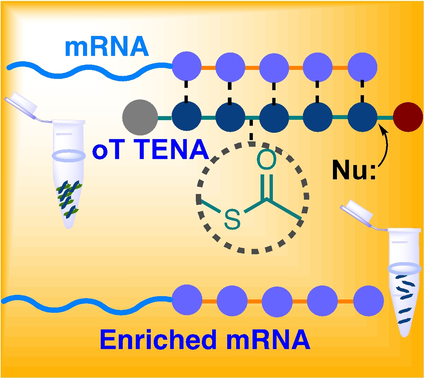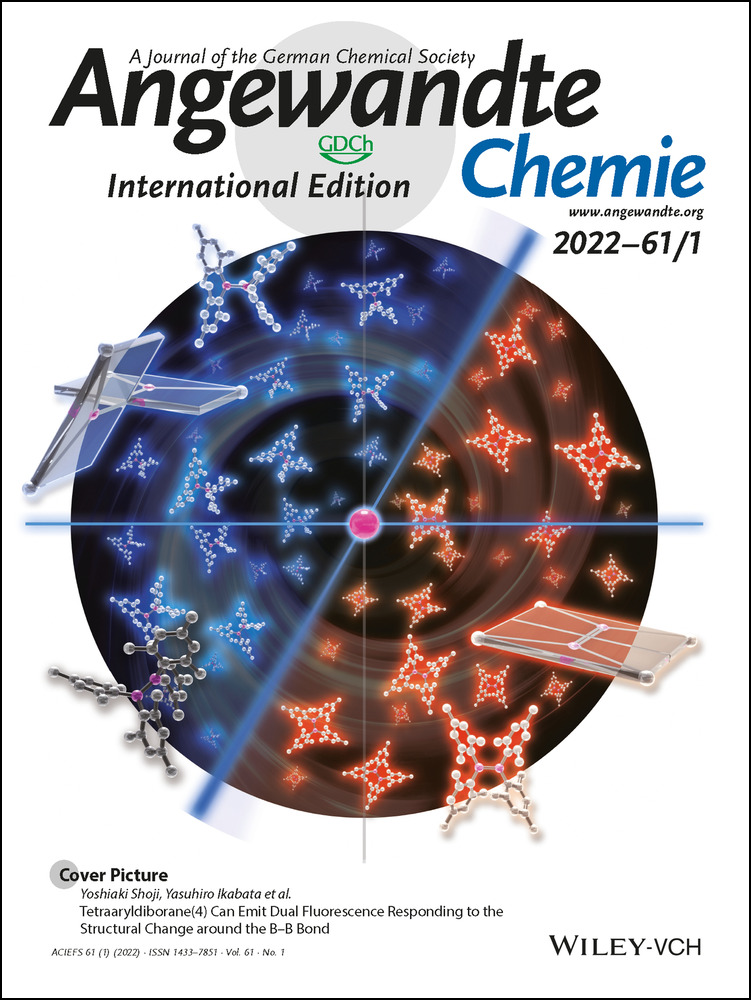Athermal, Chemically Triggered Release of RNA from Thioester Nucleic Acids
Graphical Abstract
Thioester linked oligo(T) nucleic acids are utilized for an efficient enrichment of mRNA from total RNA under ambient temperature. The selective binding of uncharged oT TENA to the poly(A) tail of the mRNA and release via a self-immolative degradation of thioester backbone under ambient temperature were the key features that enabled this approach.
Abstract
An athermal approach to mRNA enrichment from total RNA using a self-immolative thioester linked nucleic acids (TENA) is described. Oligo(thymine) (oT) TENA has a six-atom spacing between bases which allowed TENA to selectively base-pair with polyadenine RNA. As a result of the neutral backbone of TENA and the hydrophobicity of the octanethiol end group, oT TENA is water insoluble and efficiently pulled down 93±2 % of EGFP mRNA at a concentration of 10 ng μL−1. Self-immolative degradation of TENA upon ambient temperature exposure to nucleophilic buffer components (Tris, DTT) allowed recovery of 55±27 ng of mRNA from 3.1 μg of total RNA, which was not statistically different from the amount recovered using Dynabeads® mRNA DIRECT Kit (89±24 ng). Gene expression as measured by RT-qPCR was comparable for both enrichment methods, suggesting that the mild conditions required for enrichment of mRNA using oT TENA are compatible with RT-qPCR and other downstream molecular biology applications.





